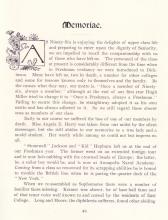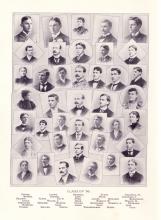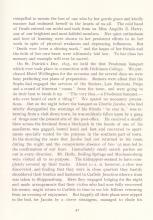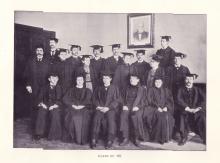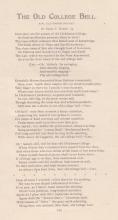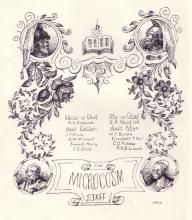Remembering Fellow 1896 Classmates
In the 1896 class history there is an included section to remember some of their fellow classmates, including a few women. The loss of Angella E. Harry is mentioned right away. They speak kindly of her presence on campus stating that "she still abides in our memories as a true lady and a model student. Her worth while among us could not but impress us all." Then they also mention two female students gone on to other colleges. The section states that an "A. R.

